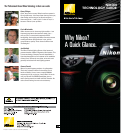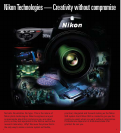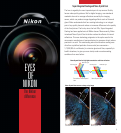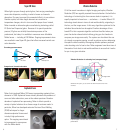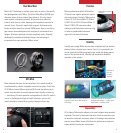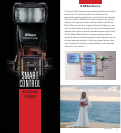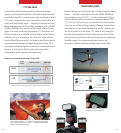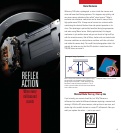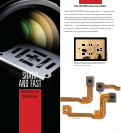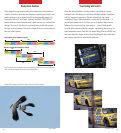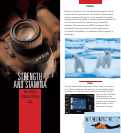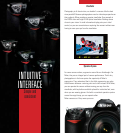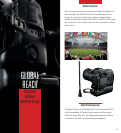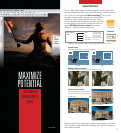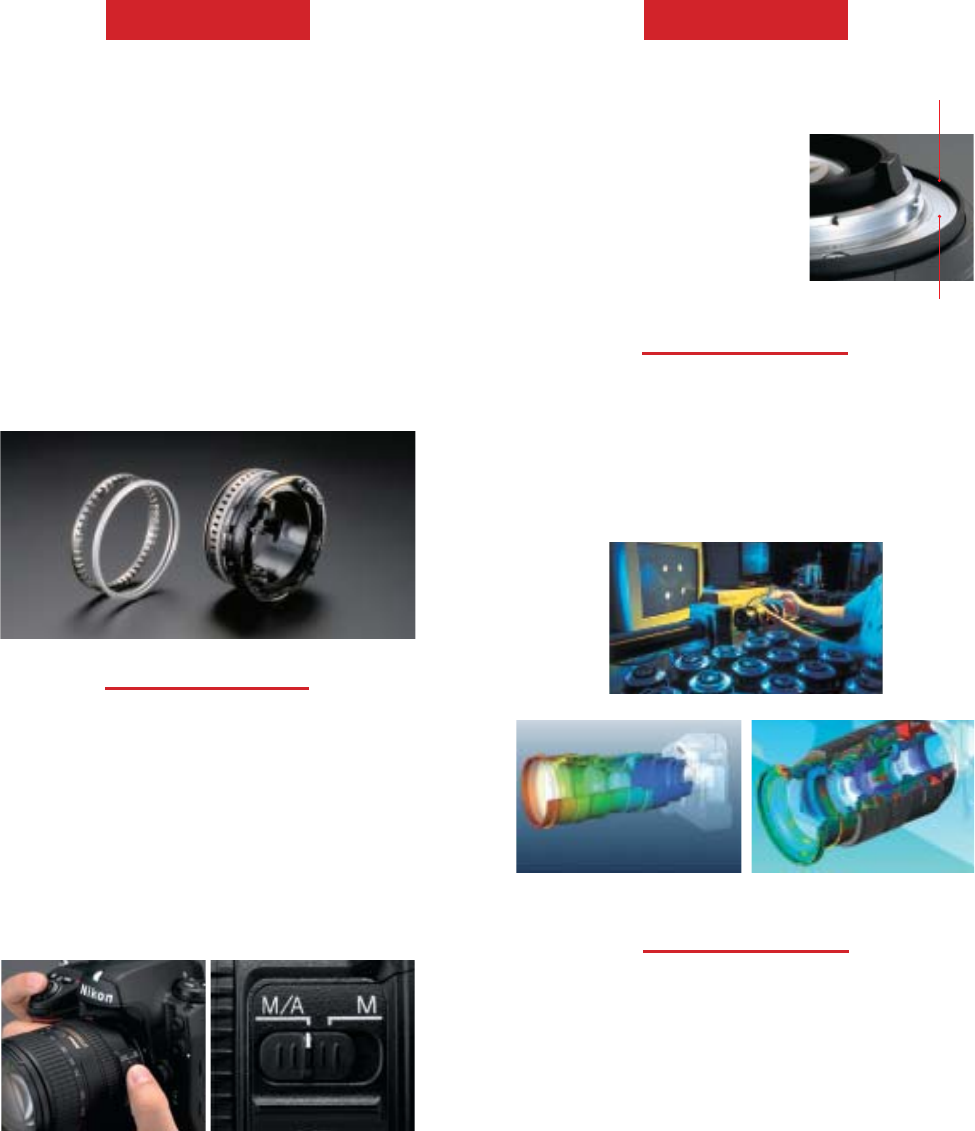
Protection
Nikon’s professional digital SLRs like the
D2 series have superior protection against
dust and moisture. Similarly, Nikkor lenses
such as AF-S VR Zoom-Nikkor 70-200mm
f/2.8G IF-ED and AF-S DX Zoom-Nikkor 17-
55mm f/2.8G IF-ED have extra rubber
sealing around the buttons and mount ring
in order to provide added assurance
against the harshest of elements.
98
Silent Wave Motor
Nikon’s AF-S technology is another reason why so many of the world’s
best photographers trust Nikkor. The Silent Wave Motor (SWM) uses
ultrasonic waves to focus internal lens elements. This high-torque
motor system is extremely powerful, driving auto focus elements
instantly after start-up, while stopping with exceptional precision for
accurate focus. The result: superb total response. And because the
lenses are driven directly by internal SWM power, there is virtually no
gear noise or associated power loss compared to conventional lens
designs. Autofocus operation is almost completely silent. Originally
developed for professional telephoto lenses, this technology is
incorporated into most autofocus Nikkor lenses.
M/A Mode
Nikon believes that even the best autofocus in the world should be
complemented by smooth, integrated manual focus option. That’s why
AF-S Nikkors feature Nikon’s exclusive M/A mode that allows you to
switch from autofocus to manual operation with virtually no time lag
— even during AF servo operation and regardless of which AF mode is
in use. In challenging low-light or backlit situations, you can still
quickly override to manual focus just by rotating the focus ring.
Reliability
Literally every single Nikkor lens has been inspected and fine-tuned to
perform before it reaches your camera. Once it is in your hands, you
can be sure that the Nikkor engineers have tested the design against
some of the harshest shock, humidity and temperature durability
standards in the industry.
Lens-mount groove
Rubber lip for moisture
protection
This computer graphic shows a simulation of
how much a lens can be deformed by its
own weight.
Simulations such as this are used to
determine lens damage — where, and to
what extent — caused by shock.
Alignment of
each lens
element is
inspected.
Responsibility
All of today’s Nikkor optics adhere to the most stringent environmental
standards. The result of extensive long-term efforts to remove the use
of hazardous chemicals and heavy metals in the design and production
process means Nikkor lenses still deliver the performance customers
expect without harming our environment.



